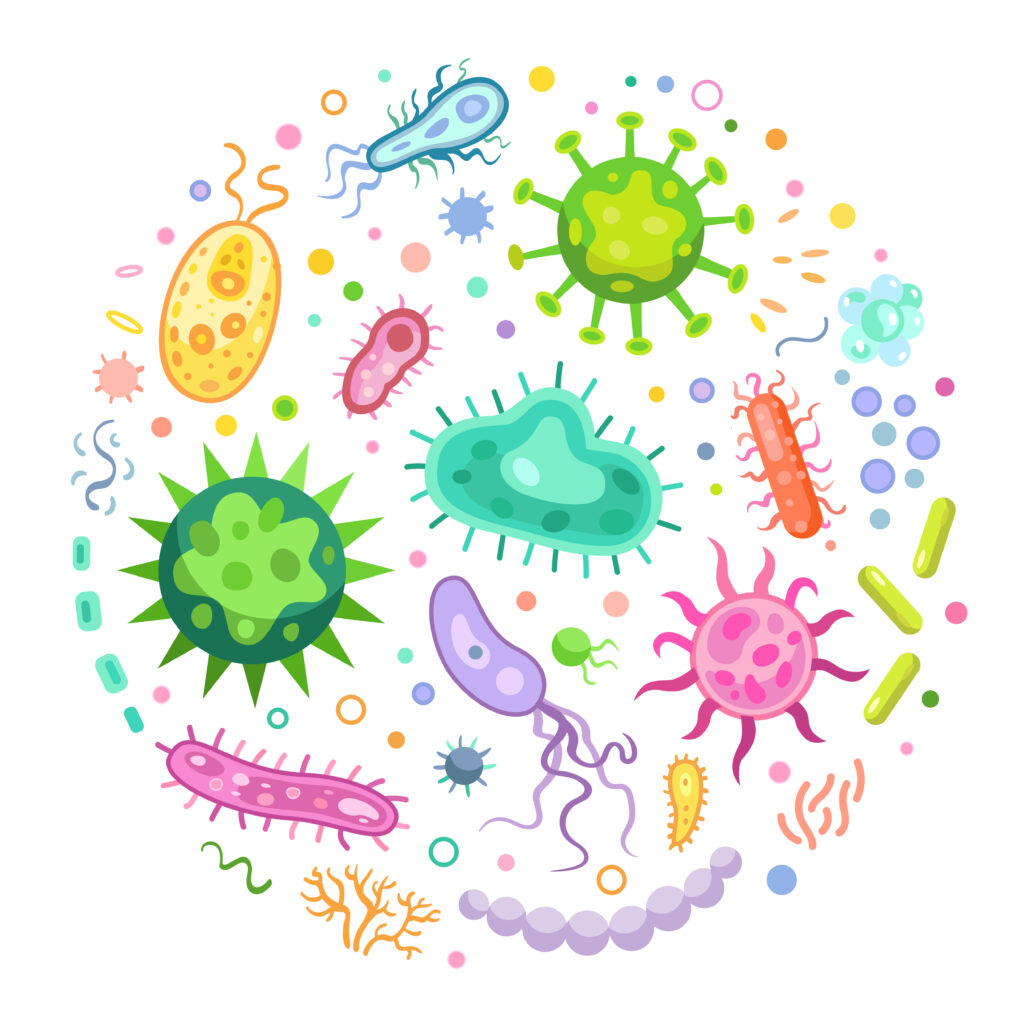Diet with hormonal disorders – rules

Diet with hormonal disorders – rules
The endocrine system controls the physiological functions of the body – ensures its homeostasis, plays a regulatory role and is responsible for our well-being. Can the way we eat affect how it works? What should the diet look like in the event of certain hormonal disorders? Let’s check it out!
Diet and hormone regulation – the role of nutrition in the body’s hormonal balance
The way we eat has a direct impact on the functioning of our hormones. The physical activity undertaken as well as whether we had the opportunity to be breastfed in childhood is also important.
Selected hormones may be susceptible to, inter alia, changes in the energy balance. For example, insufficient energy supply may be associated with disturbances in the functioning of the ovaries, the occurrence of anovulatory cycles, shortening of the luteal phase and a decrease in the concentration of progesterone in the blood. A long-term, highly restrictive diet will therefore even lead to the complete cessation of the menstrual cycle. This determines the importance of the correct supply of nutrients and macronutrients in the case of, for example, women of childbearing age who are trying to conceive. Researchers noticed that the right diet, proper selection of ingredients, products and their relationship to each other have a beneficial effect on fertility in women and vice versa.
The proper supply of energy should be calculated individually for each of us, based on the daily lifestyle, physical activity, physiological state and health. A specialist dietitian can help in this regard.
A diet that will support the endocrine system – the most important rules
It is difficult to talk about a single, strictly defined diet supporting hormones, or a diet that allows you to regulate already existing hormonal disorders. What our menu should look like strictly depends on our health, individual needs, tolerance, as well as the problems we struggle with. However, it is worth introducing a few basic elements in the field of proper nutrition, which will certainly not harm you, and perhaps support the work of the endocrine system. It includes the following recommendations:
– base your diet on natural products, processed as little as possible,
– choose products and dishes from the so-called low glycemic index, i.e. raw vegetables and fruits, whole grain cereals, natural dairy products, nuts, etc., and avoid those with a high glycemic index, i.e. juices, colored drinks, cereals and dishes based on white flour, breakfast cereals , flavored yoghurts, sweets and salty snacks,
– eliminate or severely limit the consumption of fast-food,
– eliminate energy drinks and alcohol from your diet,
– avoid excessive amounts of food additives and preservatives – read labels,
– take care of the proper hydration of the body,
– reach for products with a beneficial effect on the composition of the intestinal microflora, e.g. fermented milk drinks, silage,
– eat regular meals.
Diet for hormonal changes during menstruation
In women, menstruation is a time when hormones can make daily activities significantly uncomfortable. Hormonal changes observed during menstruation will cause, among others, huge dietary cravings, including the desire to eat large amounts of sweets. Experts argue that such a diet, characterized by a high intake of sugars as well as salty snacks, tea, coffee and saturated fatty acids, will be associated with a higher risk of dysmenorrhea. It is therefore recommended that the diet during the period complies with the principles of healthy eating, rich in antioxidants (present in, among others, fruits, vegetables, nuts) that will soothe unpleasant ailments.
In addition, it is recommended to constantly care for the correct supply of vitamin D3, folic acid, pantothenic acid, vitamin B12, magnesium, calcium and vitamin B6, which will directly affect the regulation of hormonal activity, and thus – well-being at a critical time of the month.
Diet for hormonal changes caused by stress
Chronic stress is basically an integral part of everyone’s life. However, how we will deal with it depends only on us. An energized body is also inextricably linked with hormonal changes. Under the influence of emotions, some eat stress, while others cannot look at food at this time. Of course, hormones are connected with our behavior, for example the concentration of cortisol, which is commonly known as the stress hormone. Also important in terms of well-being are: serotonin, tryptophan, dopamine and melatonin. Long-term stress will also contribute to the emergence and increase of deficiencies of minerals and vitamins such as: folic acid, vitamins B12 and A, C, E, D3, magnesium and zinc. Therefore, it is recommended that the daily diet contains the lowest possible amount of simple sugars and processed fats, which affect, among others, weakening the action of neurotransmitters and increasing the risk of stress.
According to the researchers, there are also foods that can have a sedative effect and affect the production of the aforementioned relays. For this purpose, it is recommended to ensure the proper supply of, among others: fish, whole grain products, nuts, legumes, leafy vegetables, eggs, milk, cocoa, oatmeal, black currants, strawberries, kiwi, parsley, pepper, Brussels sprouts or seafood. The presence of polyunsaturated fatty acids in the menu, which build our neurons in the brain, is also especially important. They can be found in fatty sea fish and fresh vegetable oils.
Diet for hormonal changes of serotonin and melatonin
Serotonin is a biogenic amine that occurs in the central nervous system as a neurotransmitter. It is made of tryptophan, an amino acid provided with food. For serotonin synthesis to work properly, the body also needs adequate amounts of vitamin C, vitamin B6, and magnesium. Thanks to serotonin, we are less prone to irritability, and the amine itself is known as the happiness hormone. It is also worth that the diet provides the right amount of magnesium and tryptophan, which is found in beef, pork, fish, egg, milk, cocoa, nuts and seeds.
Melatonin, in turn, is formed from serotonin and determines the proper circadian rhythm. For its production, as in the case of serotonin, tryptophan is necessary. Deficiency of this neurotransmitter will be responsible for insomnia, malaise, irritability and fatigue.
Diet for thyroid hormones
Thyroid diseases are nowadays one of the most common disease entities. The thyroid gland has a number of important functions in the body, including is responsible for the production of the hormones triiodothyronine (T3) and thyroxine (T4), the main task of which, in turn, is the regulation of metabolism. One of the most common diseases of the thyroid gland is hypothyroidism, a condition in which too little hormones are produced. Proper nutrition plays an important role in diseases of this gland.
In conclusion, a properly composed diet will play an important role in hormonal disorders. Regardless of what problems we are struggling with, every day we should take care of a rational menu, in accordance with the generally accepted principles of healthy eating, which may help, among others, alleviation of already existing ailments. This fact seems to be of particular importance especially in the case of women struggling with, inter alia, polycystic ovary syndrome (PCOS), infertility and thyroid disease.








Responses